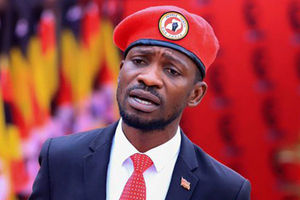
Moses Khisa
As noted in two preceding columns, a book titled Autocratisation in Contemporary Uganda, for which I served as lead author and editor, came out recently. It charts the contours of President Museveni’s nearly four-decade long rule, detailing the pillars and poles, the sources and strategies that have produced both a durable regime but also a personalist ruler.
Central to the book’s argument is what I framed as the theory of autocratic adaptability, the adeptness to adjust to changing circumstances, and the recalibration to attend to contending forces challenging the political status quo.
I should reiterate that interested and perceptive readers who get the chance to sift through the pages of the book may or not find it worthwhile, a judgment I as the author cannot make here. Given the book’s unavailability on the Ugandan market, I hope that my editors at this publication will provide a detailed and serialised analysis for the benefit of the wider public.
In any event, I want to conclude commentary on the book by providing some comparative reflections on what ultimately tends to happen to long-surviving systems. What I will briefly sketch out here serves to convey arguably the book’s most sobering message that all civically conscious Ugandans ought to give careful thought.
Rulers and regimes that hang onto power for so long, especially through dubious practices and illegitimate methods, in the final analysis come to tragic endings for the reigning ruler, or the regime and state, or society as a whole, or all three combined – the worst outcome.
Across Africa of the past and present, instructive and painful examples abound. From Mobutu’s Congo-Zaire and Mubarak’s Egypt to Gaddafi’s Libya, Al-Bashir’s Sudan, and Mugabe’s Zimbabwe, the final reckoning has tended to be chaotic and humiliating if not utterly destructive with runaway interminable and deadly conflict as we see in Congo and Sudan.
A ruler and regime that sustains its hold on power for so long invariably hollows out state institutions, erodes autonomous civil society, kills independent social institutions and inhibits alternative centres of power.
The imperatives of ruling for life, as we have in Uganda today, are at odds with logics of independent institutional arrangements and durable pillars for managing public affairs.
A highly personalised system of rule, where the ruler at the top and his courtiers determine or drive critical decision-making, run roughshod of whole agencies and institutions of government, is incompatible with building a long-term and viable governing mechanism.
Whatever is in place in all likelihood goes down with the incumbent ruler and regime. Government collapse necessarily leads to state implosion and social disorder. Once the most important institution, the president, is out of the picture one way or another, everything most likely goes up in smoke.
The scramble for succession inside the ruling class alone can turn nasty and bloody. And those who have long felt squeezed, oppressed, and brutalised can seize the moment to rise up and seek revenge while those who spent time in opposition trenches will rush to claim the seat of power. In a socially fragile and fractured society like Uganda, the stakes can get very high and the deadly fire can spread pretty fast.
All this may sound speculative and alarmist only but there are way too many comparative examples including closer home for us to not think deeply about what might lie ahead for beloved Uganda.
It’s true that not all long surviving rules and regimes leave behind mayhem and catastrophe once out of power, but the method of their departure is what makes all the difference.
After nearly 40 years in power, Jose Eduardo dos Santos in Angola stepped down peacefully and the ruling party carried on without much of a problem except for the former president’s family and its questionable wealth.
The Eyadema family in Togo has ruled that country since 1967, the son taking over in 2005 following the father’s death. And in Zimbabwe, after 37 years the military kicked out Robert Mugabe but installed his former deputy, thus assuring regime continuity under the same ruling party. None of these cases can be looked to as good examples for a post-Museveni Uganda scenario to move the country forward.
On the other hand, it is also true that countries that routinely change ruling parties and presidents, or at least the latter, are not necessarily superbly governed or better performing in serving the needs and aspirations of the public. One can point to most of Southern Africa and bits of West Africa.
Yet, with the exception of Mali and Niger, both facing an insecurity terrain quite germane to the Sahel, none of the countries that have well-established mechanisms and entrenched norms of peaceful changes of government are facing turmoil or deadly breakdown of social order.
A long rulership, as we have had under Mr Museveni, can potentially stabilise a country and bring about social transformation, but it has an ugly side that washes away the positives. The writing is on the wall.
[email protected]







